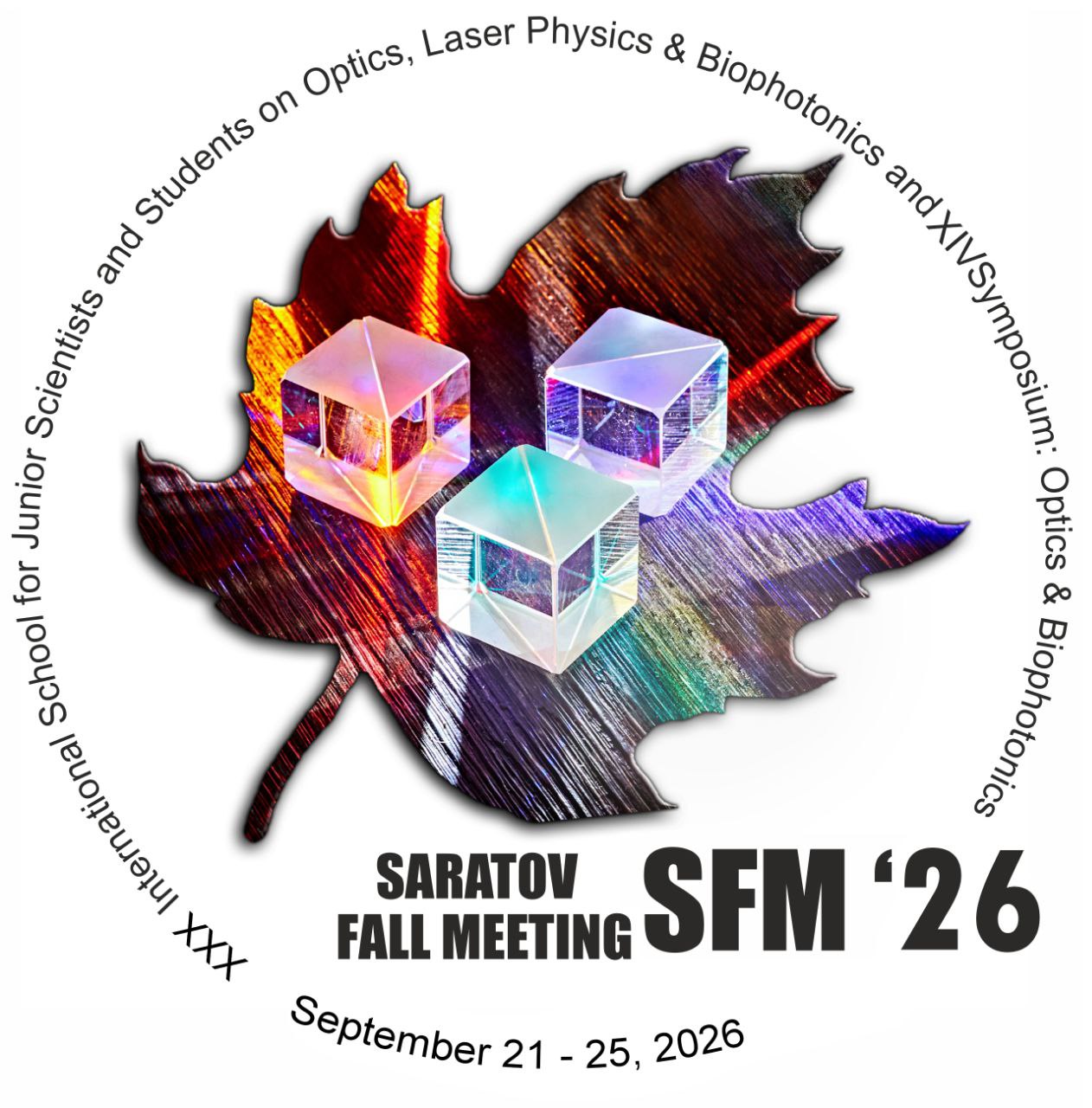Terahertz pulsed spectroscopy of tissue scaffolds moisture adsorption
Guzel R. Musina,1,2 Nikita V. Chernomyrdin,1,3,4 Elvira R. Gafarova,3,4 Arsenii A. Gavdush,1,2 Gennady A. Komandin,1,2 Irina N. Dolganova,3,5 Kirill I. Zaytsev,1,2,3 Peter S. Timashev,3,4,6,7
1 Prokhorov General Physics Institute of the Russian Academy of Sciences, Moscow, Russia
2 Bauman Moscow State Technical University, Moscow, Russia
3 Institute for Regenerative Medicine, Sechenov First Moscow State Medical University (Sechenov University), Moscow, Russia
4 World-Class Research Center “Digital Biodesign&Personalized Healthcare”, Sechenov First Moscow State Medical University (Sechenov University), Moscow, Russia
5 Institute of Solid State Physics of the Russian Academy of Sciences, Chernogolovka, Russia
6 Chemistry Department, Lomonosov Moscow State University, Moscow, Russia
7 Department of Polymers and Composites, N. N. Semenov Institute of Chemical Physics, Moscow, Russia
Abstract
Terahertz (THz) pulsed spectroscopy was applied to study interactions between water vapor and tissue scaffolds [1,2]. Complex dielectric permittivity of scaffolds was measured in the 0.4–2.0 THz frequency range, while the samples were first dehydrated and then exposed to water vapor atmosphere with 80.0 ± 5.0% relative humidity. These THz dielectric measurements of scaffolds and the results of their weighting allowed estimating the adsorption time constants and an increase of tissue mass. No statistically relevant differences between the measured properties of the intact and treated scaffolds were observed. Our findings are important for further optimization of the scaffolds’ preparation and treatment technologies. They pave the way for THz technology use as a non-invasive diagnosis tool in tissue engineering and regenerative medicine.
[1] G. Musina et al., Biomedical Optics Express 12(9), 5368 (2021).
[2] K. Zaytsev et al., Journal of Optics 22(1), 013001 (2019).
File with abstract
Speaker
Guzel R. Musina
Prokhorov General Physics Institute of the Russian Academy of Sciences, Moscow 119991, Russia
Russian Federation
Discussion
Ask question


